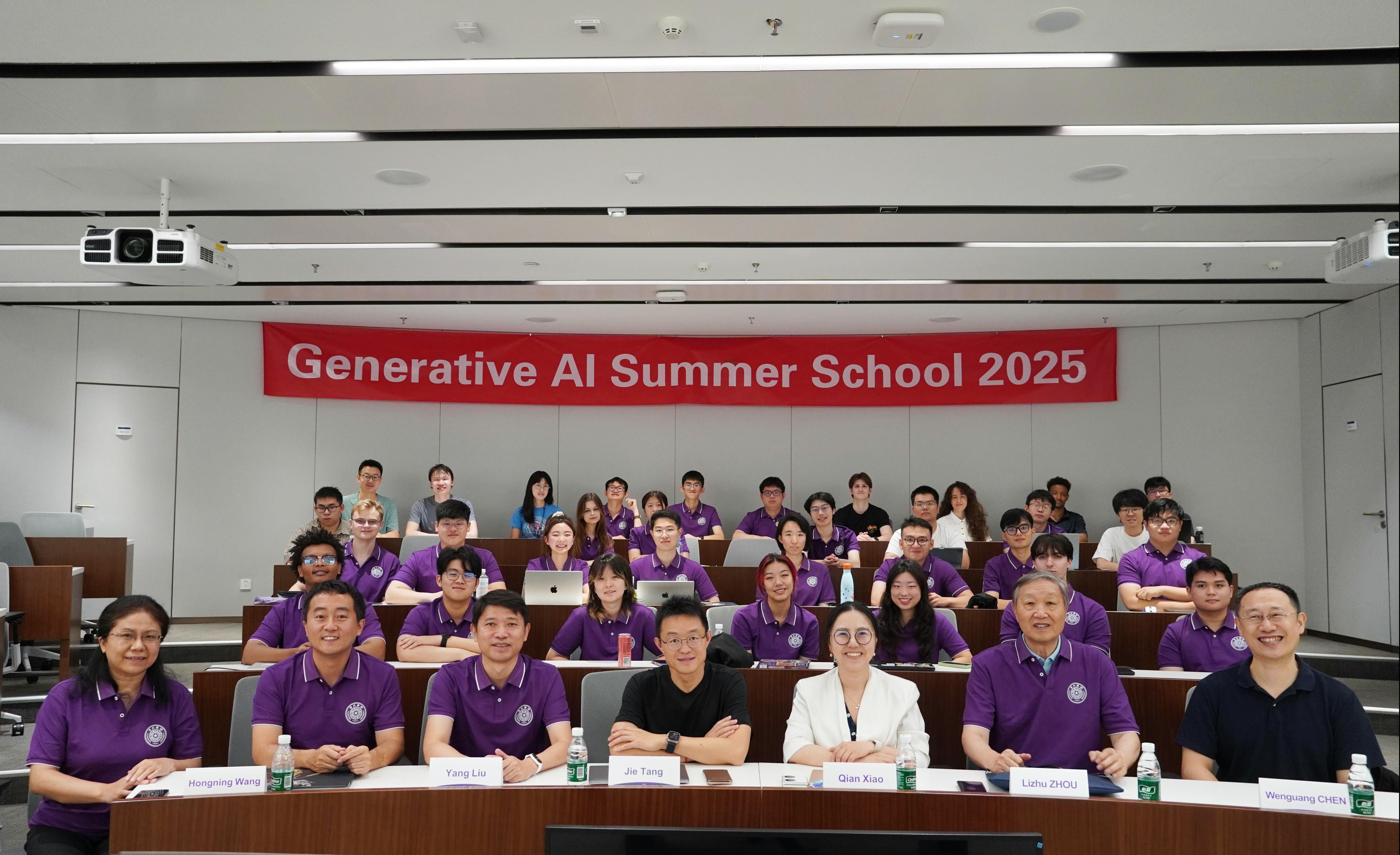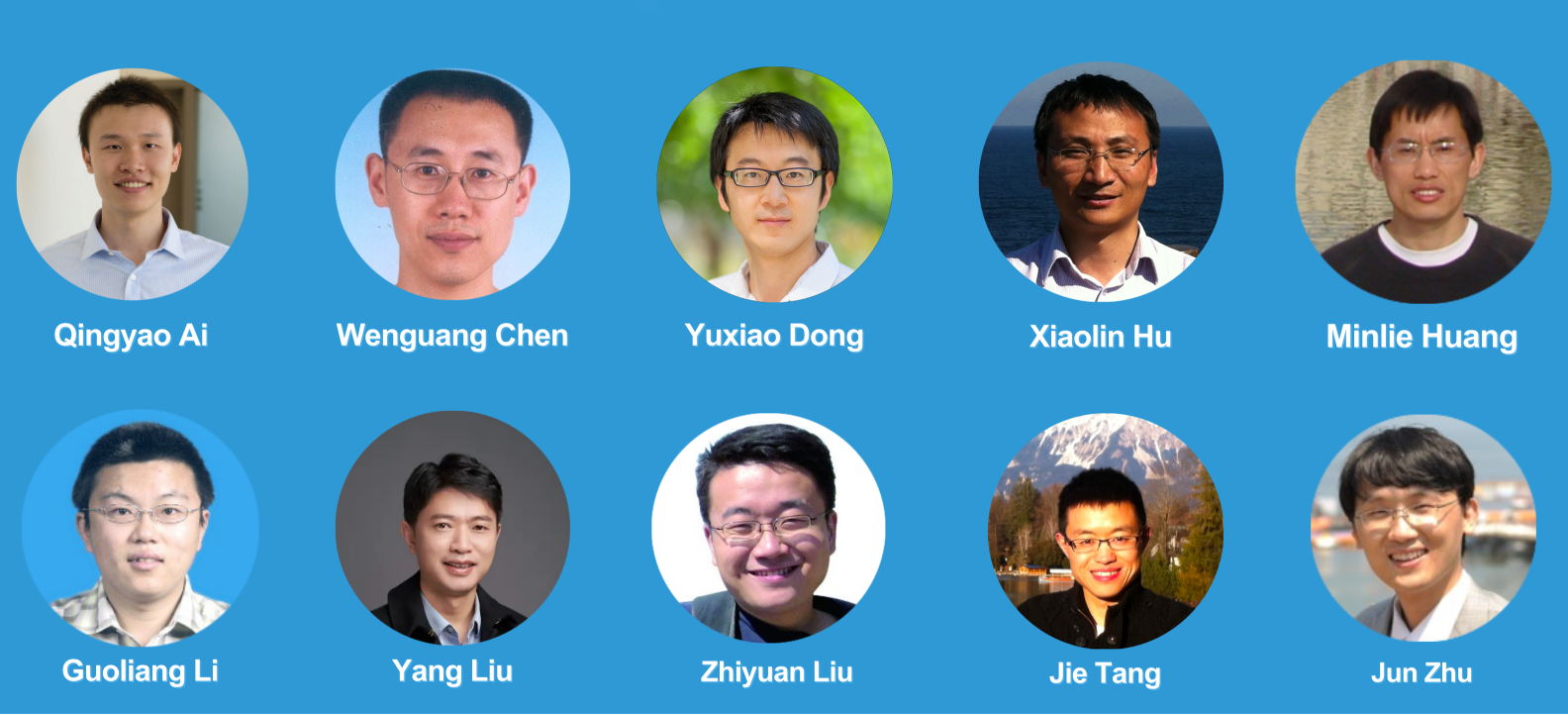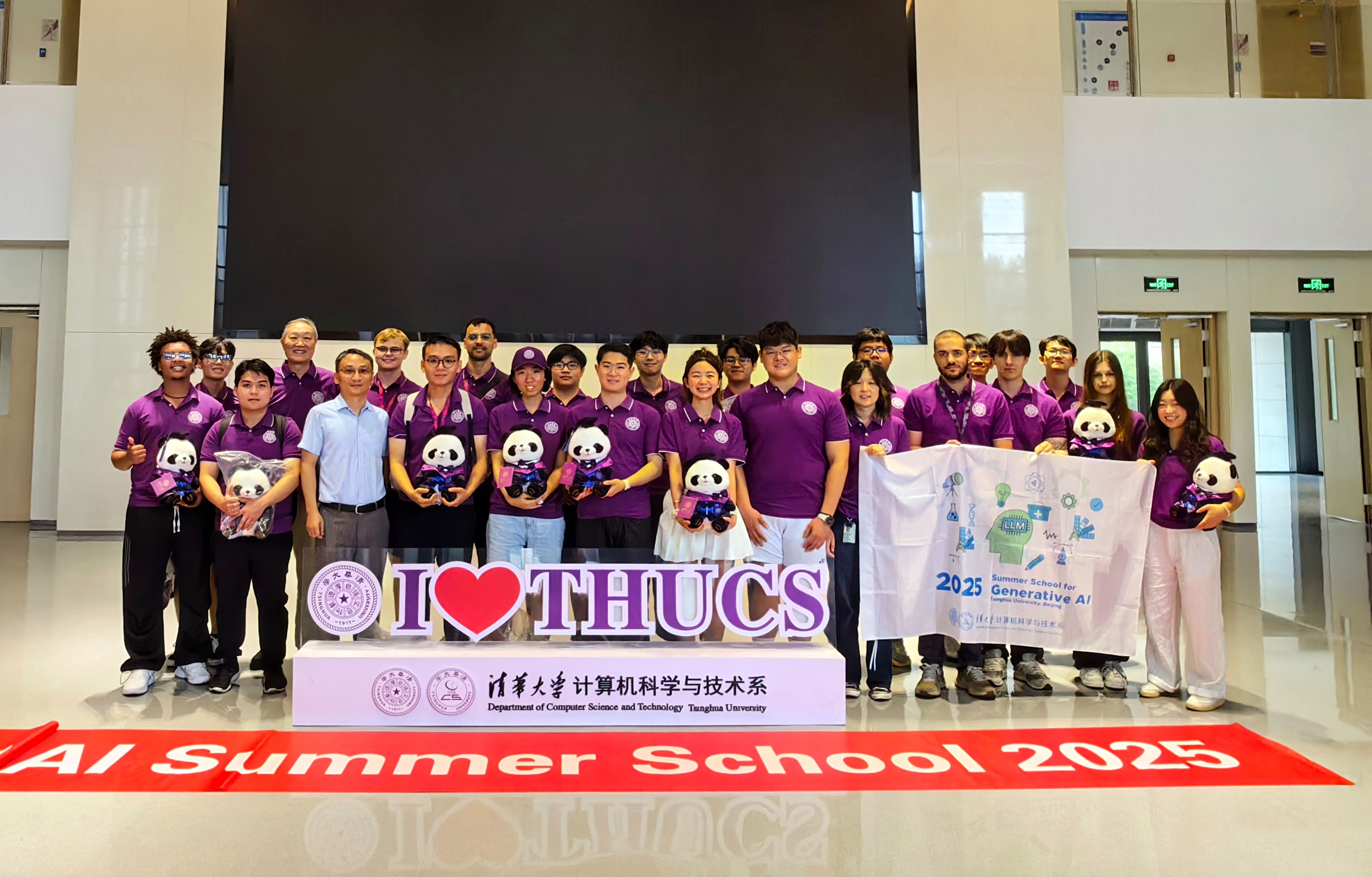The Department of Computer Science and Technology at Tsinghua University held the 2025 International Summer School on Generative AI (GenAI) from July 2 to 15. The two-week program was designed to share Tsinghua’s cutting-edge research in generative artificial intelligence with students around the world and promote international academic exchange and collaboration.
Nearly 30 students and instructors from over ten countries gathered in Beijing for the opening ceremony and then embarked on an intensive academic and cultural journey that blended rigorous coursework with real-world insights and rich cultural experiences.

A Carefully Designed Curriculum on GenAI
The summer school featured a meticulously crafted curriculum covering a wide range of foundational and advanced topics in Generative AI. Key modules included an overview of GenAI development trends, prerequisite knowledge in machine learning and natural language processing, core technologies for large model training, fundamentals of multimodal learning and foundation models, core GenAI algorithms, computing infrastructure and system optimization, as well as data acquisition and quality assurance. Lectures were delivered by experienced faculty members from Tsinghua’s Department of Computer Science and Technology, many of whom are at the forefront of GenAI research. Their deep insights and clear instruction were widely praised by students.

The program incorporated multiple hands-on lab sessions to reinforce theoretical learning. These experiments were conducted using a dedicated computing environment sponsored by Zhipu AI, equipped with high-performance GPUs. Several teaching assistants provided one-on-one guidance, helping students deepen their understanding and improve their practical problem-solving skills in a short amount of time.
Visits to Leading Tech Companies
To offer students firsthand insights into China’s booming AI and tech industry, the summer school organized field visits to top companies including Zhipu AI, Xiaomi, Huawei, and JD.com.
At Zhipu AI, students learned about the company’s ambitious vision of "making machines think like humans" while interacting with technical experts. They also witnessed a live demonstration of Z.AI, a smartphone-based GenAI model capable of real-time environmental perception and human–machine interaction. At Huawei, students toured the company’s flagship exhibition center, marveling at its high-end strategic direction, diverse product portfolio, and elegant displays. JD.com’s lightning-fast logistics system left a strong impression, showcasing the scale and sophistication of China’s e-commerce infrastructure.
At the Xiaomi EV factory, students were stunned by the scale and automation of the production line. Robotic arms worked with surgical precision, smart logistics systems efficiently allocated materials, and the factory operated like a symphony of technology. Every 76 seconds, a new Xiaomi SU7 electric vehicle rolled off the line, showcasing a powerful testament to innovation at industrial scale.
Immersive Cultural Experience
In addition to its technical offerings, the summer school featured an engaging cultural program that allowed students to experience the depth and richness of Chinese heritage. Professor Lili Song from the School of Foreign Languages gave a comprehensive lecture on Chinese history and culture, while hands-on activities included a traditional tea ceremony and paper cutting. Students also visited iconic landmarks such as the Great Wall, Temple of Heaven, the Tiananmen Square, and the National Centre for the Performing Arts, gaining a profound appreciation for the fusion of China’s ancient traditions and modern developments.
Students also learned about Tsinghua's broader innovation ecosystem, including introductions to student competitions on intelligent agent as well as the award-winning supercomputing team.
The program concluded on July 15th with a closing ceremony, where Professor Zhou Lizhu awarded certificates and presented each student with a plush panda as a parting gift.
Participants spoke highly of the program’s academic quality and cultural depth. Bouizargan Taha, a Ph.D. student from ETH Zurich researching AI in architectural auditing, said the curriculum gave him “tremendous inspiration” for his work. Melo Rui from the University of Porto admired the department’s research strength and expressed hopes of returning for an exchange program. Conrad Lennart Axel from RWTH Aachen, who also attended our summer school on LLM last year, noted that “this year’s program featured many adjustments in course material reflecting significant new developments in AI and was even better than last year.” Participants also provided feedback on potential improvements on this program.

Editor: Li Han

